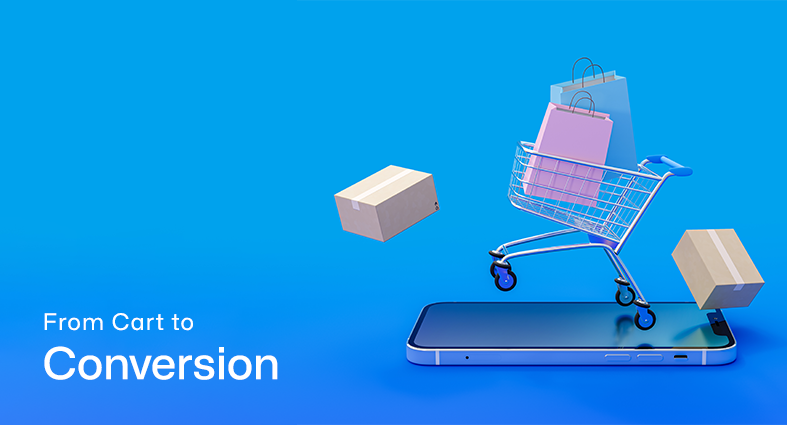With the increasing popularity of online shopping, it has become essential for businesses to have a robust and efficient ecommerce platform to showcase their products or services, manage inventory, process payments, and provide a seamless shopping experience for customers. The ecommerce platform you choose should align with your business goals, support your growth plans, and offer the necessary features and functionalities to meet the unique needs of your industry and target audience. It should provide a user-friendly interface for managing your online store, integrating with essential third-party services, and optimizing your website for search engines.
Importance of Choosing the Right Ecommerce Platform
Selecting the right ecommerce platform is of paramount importance for the success of your online business. Your chosen platform serves as the foundation for your entire ecommerce operation, determining the functionality, scalability, and overall user experience of your online store. A well-suited platform can provide seamless navigation, secure payment processing, robust inventory management, and effective marketing tools, all contributing to increased sales and customer satisfaction. On the other hand, a poor choice can result in technical limitations, slow loading times, unreliable performance, and a frustrating shopping experience, leading to lost sales and a damaged brand reputation. By carefully considering and selecting the right ecommerce platform, you are setting yourself up for long-term success and growth in the competitive online marketplace. Selecting the right ecommerce platform is crucial for several reasons:
Business Requirements and Goals
When choosing an ecommerce platform, it’s crucial to assess your specific business requirements and goals. Consider the nature of your products or services, your target audience, and your desired functionalities. For instance, if you offer a wide range of products, you might need an ecommerce platform that supports extensive product variations and inventory management. If you plan to expand internationally, look for a platform that offers multi-language and multi-currency capabilities. Understanding your business needs will help you narrow down the options and find a platform that meets your unique requirements.
Scalability and Flexibility
Scalability is a key consideration when selecting an ecommerce platform. As your business grows, you need a platform that can handle increased website traffic, accommodate higher transaction volumes, and support the addition of new products or services. It’s important to choose a platform that can scale alongside your business without compromising performance or user experience. Additionally, consider the platform’s flexibility in terms of customization options and integrations with third-party tools. This allows you to tailor the platform to your specific needs and enhance its functionality with additional features or services.
Cost and Budget
The cost of an ecommerce platform can vary significantly, so it’s essential to evaluate the pricing models and associated expenses. Consider both the upfront costs and the long-term expenses involved. Some platforms charge a monthly subscription fee, while others may have transaction fees or additional costs for certain features or support services. It’s important to assess your budget and determine the affordability of different platforms. However, keep in mind that while cost is a factor, it shouldn’t be the sole determining factor. It’s crucial to find a balance between cost and the features, scalability, and support that the platform provides.
User-Friendliness and Ease of Use
User-friendliness is vital for both you as the business owner and for your customers. A user-friendly ecommerce platform should have an intuitive admin interface that allows you to manage your online store easily. Look for features like drag-and-drop website builders, customizable templates, and straightforward product management tools. Additionally, consider the ease of use from a customer’s perspective. Ensure that the platform offers a smooth and seamless shopping experience, with easy navigation, clear product descriptions, and a streamlined checkout process. A user-friendly platform will save you time and effort in managing your store and provide a positive experience for your customers.
Design and Customization Options
The design of your online store plays a significant role in attracting and engaging customers. Look for an ecommerce platform that offers a range of design options, including pre-designed templates or the ability to create a custom design. Consider the aesthetic appeal, responsiveness, and mobile-friendliness of the available design options. Furthermore, assess the level of customization the platform allows, such as the ability to add your branding elements, customize the layout, or integrate with third-party design tools. The ability to create a visually appealing and unique storefront will help differentiate your brand and leave a lasting impression on your customers.
Integration with Third-Party Services
To enhance the functionality of your ecommerce store, integration with third-party services is often necessary. Consider the compatibility of the ecommerce platform with popular payment gateways, shipping providers, and marketing tools. Ensure that the platform supports the integration of the services you require to streamline your operations and provide a seamless customer experience. Integration with customer relationship management (CRM) or enterprise resource planning (ERP) systems may also be important for managing customer data and automating business processes. Choosing a platform with a wide range of integrations will allow you to leverage the power of different tools and services to optimize your ecommerce operations.
Factors to Consider in Selecting an Ecommerce Platform
When choosing an ecommerce platform, several critical factors need to be taken into account. First and foremost, assess your business requirements and goals. Consider the specific features and functionalities your online stores need, such as product variations, inventory management, payment options, and shipping integrations. Scalability and flexibility are also crucial considerations, as your business will likely evolve and expand over time. Ensure that the platform can accommodate increased traffic, handle higher sales volumes, and support future growth without requiring a complete migration. Cost and budget are important factors as well, so evaluate the pricing models and associated fees of different platforms to find one that aligns with your financial resources. Additionally, user-friendliness and ease of use are essential for managing your online store efficiently. Look for a platform with an intuitive interface and user-friendly backend tools that allow you to easily manage product listings, track orders, and handle customer inquiries. Finally, consider the platform’s design and customization options to ensure that it aligns with your brand identity and allows you to create a visually appealing and unique online store. By carefully evaluating these factors, you can make an informed decision and choose an ecommerce platform that suits your business needs and sets you up for success.
User-Friendliness and Ease of Use
When choosing an ecommerce platform, user-friendliness and ease of use are crucial factors to consider. A user-friendly platform with an intuitive admin interface and straightforward website management tools can save you time and effort in managing your online store. Look for platforms that offer a user-friendly dashboard where you can easily add and manage products, create and edit categories, and update inventory. Additionally, consider the platform’s ease of use for setting up payment gateways, configuring shipping options, and managing customer orders. A platform that provides a smooth and intuitive user experience will not only benefit you as the store owner but also enhance the overall shopping experience for your customers, leading to higher conversion rates and customer satisfaction. Let’s explore the key aspects to assess within this category.
Backend management and administration
Efficient backend management and administration are essential for smooth day-to-day operations. Evaluate the platform’s backend interface and features that enable you to manage your online store effectively. Look for functionalities like easy product management, order processing, inventory tracking, and customer management. A streamlined backend system allows you to handle tasks efficiently, saving time and resources.
User interface and intuitive design
The user interface (UI) of your ecommerce platform should be visually appealing and user-friendly. A well-designed UI enhances the overall user experience and encourages visitors to explore your products and make purchases. Look for a platform with a clean and intuitive design that simplifies navigation and provides clear calls to action. An intuitive UI ensures that customers can easily find what they’re looking for, leading to a higher conversion rate.
Content management system (CMS) capabilities
A robust content management system (CMS) is crucial for managing your website’s content effectively. Evaluate the CMS capabilities of the ecommerce platform to ensure it offers features such as easy page creation, blog management, and content editing. A user-friendly CMS empowers you to create and update content seamlessly, helping you showcase your products and engage with your audience effectively.
Support and resources available
When considering the user-friendliness of an ecommerce platform, it’s important to assess the level of support and resources available. Look for platforms that provide comprehensive documentation, tutorials, and a responsive support team. This ensures that you can easily find solutions to any challenges or questions that arise during the setup and management of your online store. Prompt and reliable support can save you time and frustration, allowing you to focus on growing your business.
Ecommerce Platform Security and Performance
Online stores handle sensitive customer information, including personal and financial data, making security a top concern. Look for ecommerce platforms that offer robust security features such as SSL encryption, secure payment gateways, and regular security updates to protect your website and customer information from potential cyber threats. Additionally, consider the platform’s performance capabilities, including page loading speed and uptime reliability. A slow-loading website can negatively impact user experience and conversion rates, so opt for an ecommerce platform that prioritizes performance optimization to ensure smooth and efficient browsing and purchasing experiences for your customers. By choosing an ecommerce platform that excels in both security and performance, you can provide a safe and seamless online shopping environment, building trust with your customers and driving your ecommerce success.
Data Security and Protection Measures
When choosing an ecommerce platform, prioritizing data security is crucial to safeguard sensitive customer information and maintain trust. Look for platforms that offer robust security features such as SSL encryption, secure payment gateways, and compliance with industry standards like PCI-DSS. Additionally, consider platforms that provide regular security updates, backups, and advanced measures to prevent data breaches and unauthorized access.
Hosting Options and Server Performance
The choice of hosting can significantly impact your ecommerce website’s performance and reliability. Evaluate the hosting options provided by the ecommerce platforms, such as shared hosting, dedicated hosting, or cloud hosting. Consider factors like server uptime, scalability, and the platform’s ability to handle high traffic volumes during peak times. Opt for a hosting solution that ensures optimal website loading speeds and minimizes downtime.
Load Speed and Website Performance Optimization
Website load speed plays a vital role in user experience and can directly impact conversion rates. Slow-loading websites often result in higher bounce rates and lower customer satisfaction. Look for ecommerce platforms that prioritize website performance optimization, including features like caching, image optimization, and code minification. Additionally, consider platforms that offer content delivery networks (CDNs) to ensure fast loading times for customers across different geographical locations.
Mobile Responsiveness and Optimization
In the mobile-first era, your ecommerce website must be mobile-friendly and responsive. With an increasing number of users accessing the internet and making purchases via mobile devices, a mobile-optimized website is essential for a seamless user experience. Evaluate the mobile responsiveness of the ecommerce platforms you’re considering and ensure that your online store will adapt and display properly on various screen sizes. Responsive design, touch-friendly interfaces, and mobile-specific features are essential for capturing and retaining mobile customers.
Customer Support and Community
Customer support is a crucial aspect when choosing an ecommerce platform. It’s important to consider the level of support provided by the platform, including the availability of technical assistance, documentation, and customer service channels. Look for platforms that offer 24/7 support and have a reputation for responsive and helpful customer service. Additionally, consider the platform’s community and user base. Being part of a vibrant community can provide valuable resources, forums for discussion, and opportunities to learn from other users’ experiences. A strong community indicates that the platform is actively supported, regularly updated, and has a dedicated user base that can provide insights and assistance. Prioritizing customer support and being part of an engaged community will ensure that you have the necessary assistance and resources to overcome any challenges or issues that may arise during your ecommerce journey.
Availability and responsiveness of customer support
When selecting an ecommerce platform, it’s essential to consider the availability and responsiveness of customer support. Check the platform’s support hours and response times to ensure they align with your business needs. Prompt and efficient customer support can be invaluable when you encounter technical issues or have questions regarding platform functionalities.
Online community and forums for platform users
An active and engaged online community can greatly enhance your experience with an ecommerce platform. Look for platforms that have a thriving online community and forums where users can connect, share knowledge, and seek assistance. Being part of a community allows you to learn from experienced users, get insights into best practices, and discover solutions to common challenges. A strong community fosters collaboration and provides an additional support network beyond the platform’s official customer support.
Documentation, tutorials, and training resources
Comprehensive documentation, tutorials, and training resources are vital for understanding and utilizing the full potential of an ecommerce platform. Look for platforms that provide extensive documentation and tutorials covering various aspects of platform setup, customization, and management. Video tutorials, step-by-step guides, and FAQs can be valuable resources for both beginners and advanced users. Additionally, consider if the platform offers training programs or webinars to help you make the most of its features.
Upgrades and future development plans
The ecommerce industry is constantly evolving, and it’s important to choose a platform that keeps pace with technological advancements. Look for platforms that regularly release updates, improvements, and new features. This demonstrates their commitment to continuous development and ensures that your online store remains competitive. Additionally, inquire about the platform’s future development plans to assess if they align with your long-term business goals. A platform with a clear roadmap and a history of innovation can assure that it will meet your evolving needs.
Integration and Third-Party Apps
Integration with third-party services and apps is a crucial aspect to consider when choosing an ecommerce platform. The ability to seamlessly connect with popular payment gateways, shipping providers, and marketing tools can enhance the functionality and efficiency of your online store. Evaluate the platform’s compatibility with the services you currently use or plan to incorporate in the future, such as customer relationship management (CRM) or enterprise resource planning (ERP) systems. Look for platforms that offer easy integration options, robust APIs, and a wide range of available integrations. The ability to integrate with other essential systems allows for streamlined operations, centralized data management, and better customer experiences. Additionally, consider the platform’s ability to integrate with social media platforms, allowing you to leverage social selling and reach a broader audience. A well-integrated ecommerce platform empowers you to leverage the power of various tools and services to optimize your online store’s performance and drive business growth. Let’s explore some key aspects related to integration and third-party apps.
Integration capabilities with popular tools and services
A robust ecommerce platform should seamlessly integrate with popular tools and services that are essential for running your online business. These may include customer relationship management (CRM) software, email marketing platforms, analytics tools, inventory management systems, and more. Before making a decision, ensure that the platform you choose offers native integrations or supports integration via APIs with the tools you currently use or plan to use in the future.
Availability of plugins and extensions
Plugins and extensions play a vital role in expanding the functionality of your ecommerce store. They offer additional features, such as advanced product customization, customer reviews and ratings, social media integrations, and advanced SEO capabilities. Check if the platform has a wide range of plugins and extensions available in their marketplace or app store. Assess the quality and popularity of these plugins by reading reviews and understanding their compatibility with the platform.
Compatibility with payment gateways and shipping providers
A smooth and secure payment process is crucial for any ecommerce store. Ensure that the platform integrates with popular payment gateways, such as PayPal, Stripe, or Authorize.Net, to offer a variety of payment options to your customers. Additionally, check if the platform supports integration with different shipping providers, allowing you to seamlessly calculate shipping costs, generate shipping labels, and provide real-time tracking information.
Multichannel selling and omnichannel integration
In today’s competitive ecommerce landscape, reaching customers across multiple channels is essential. Look for an ecommerce platform that allows you to sell your products not only on your website but also on various marketplaces like Amazon, and eBay, or social media platforms like Facebook and Instagram. This multichannel selling capability enables you to expand your reach and tap into a wider customer base. Additionally, consider the platform’s ability to integrate and synchronize inventory, orders, and customer data across all sales channels, ensuring a consistent and seamless omnichannel experience for your customers.
Making Your Decision
Once you have thoroughly evaluated the key factors and compared different ecommerce platforms, it’s time to make an informed decision. Start by narrowing down your options based on how well they meet your business requirements, scalability needs, budget limitations, user-friendliness, design customization, and integration capabilities. Consider the feedback and reviews from other users, as well as the level of customer support provided by each platform. Additionally, take advantage of free trials or demos offered by the platforms to get hands-on experience and assess their usability. Prioritize platforms that offer a seamless and intuitive user interface, as well as robust customer support to assist you in case of any issues or challenges. Finally, consult with your team or seek expert advice to ensure that your chosen platform aligns with your long-term business goals and provides a solid foundation for your online store’s success. Making a well-informed decision will empower you to unlock the full potential of your ecommerce business and drive remarkable results. Here are some important factors to consider during this stage:
Assessing your specific business needs
Take a step back and revisit your specific business needs and goals. Consider which ecommerce platform aligns most closely with your requirements. Reflect on the scalability, flexibility, and customization options offered by each platform and determine which one best suits your business model and growth plans.
Seeking recommendations and expert advice
Reach out to industry experts, colleagues, or other business owners who have experience with the ecommerce platforms you are considering. Their insights and recommendations can provide valuable perspectives and help you gain a better understanding of the platforms’ strengths and weaknesses. Consider joining online forums or communities where you can ask questions and gather feedback from users who have hands-on experience with the platforms you are evaluating.
Conclusion
Selecting the right ecommerce platform for your online business is a critical decision that can significantly impact your website’s functionality, scalability, and success. By considering factors such as your business requirements and goals, scalability and flexibility, cost and budget, user-friendliness and ease of use, design and customization options, and integration with third-party services, you can make an informed choice. Remember that each ecommerce platform has its strengths and weaknesses, so it’s important to compare and evaluate multiple options. Take the time to research and test different platforms to ensure they align with your specific business needs and objectives. Additionally, seek feedback from other businesses, read reviews, and explore case studies to gain insights into the real-world experiences of using each platform. By leveraging the power of a robust and suitable ecommerce platform, you can create an online store that provides a seamless shopping experience for your customers, drives conversions, and supports the growth of your business. So, invest time and effort into choosing the right ecommerce platform, and unlock the full potential of your online store. Get in touch with Pentagon for Ecommerce development services that will take your online store to new heights. Start your journey to success now!
services
Feel free to send us a message.
Please, share your thoughts, and let's chat over a cup of tea.



















